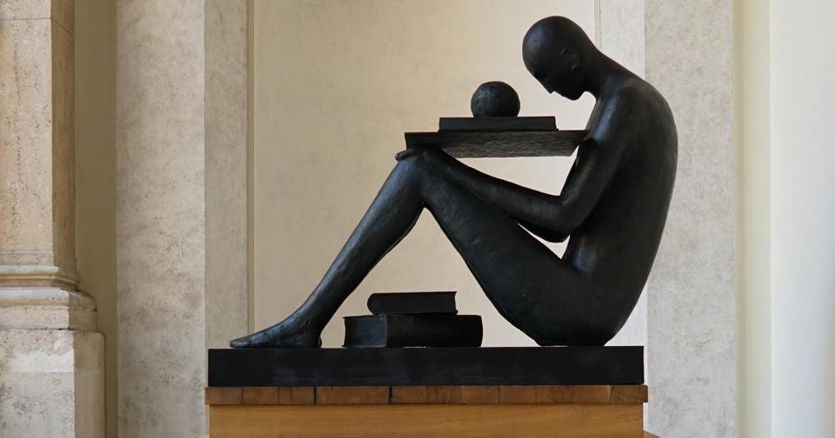«What is Treccani today? It is a hub that conveys culture in all its forms. For us, however, culture is no longer just the story of what intelligence was in the past, but also of what intelligence will be in the future ». Treccani Reti’s managing director, Simone Silvi, summarizes the thinking behind the project of the Treccani academy, of which he is president. It is a business school that was born after the acquisition of 100% of the Giunti academy business school and that will stand out for its ambition to “form mindsets and build the skills that are increasingly required in the engineering and industrial world, while resorting to also to the help of critical thinking and creativity which are two central assets of the Accademia project ”, explains Silvi.
The first postgraduate courses that will last a year are starting these days. This is the master in management of art and cultural heritage which aims to train professionals with a managerial vision in the management of the sector and the master in hr management that provides the tools to work in human resources. “The lessons will be held in the historic sixteenth-century building in Piazza dell’Encyclopedia Italiana in Rome and will be both in person and in blending mode, partly in presence, partly remotely,” says Silvi. In particular, for the courses dedicated to executive training, Treccani Accademia has devised the hybrid formula and the focus will be on the Management of Cultural Heritage and Tourism: Restaurant innovation & management, Hospitality & wine experience as well as Criminology, forensic psychology and psychopathology and high neurorehabilitation. specialty.
The goal is ambitious and is to provide the world of work with the broader skills it lacks. Taking a step back, the figure that best represented the Giunti academy is the 98% of students who, after completing the training courses, managed to pass from the status of student to that of professional. The six-month internship, foreseen by the full-time master’s study plans, facilitates the transfer. It is from here that we must start to understand the beginning of the history of the Treccani academy which will represent the future of that Giunti academy school of management, founded in 2019 by the historic Florentine publishing house Giunti Editore. After the first step towards the acquisition (with which Treccani had acquired 50% of the Giunti academy), the name had been changed to Giunti and Treccani academy. In the past few days, the completion of the operation with which the Treccani academy was born has taken place. It is a higher education school that the company will implement through the know-how that derives from its cultural and publishing heritage in training. «The teachers will be chosen among the high personalities who have contributed and contribute to the project of the universal encyclopedia and among managers who will transfer their experience to the students. With the birth of the new institution, Treccani wants to underline once again its role in the dissemination of culture ”, says Silvi. This is an objective already renewed with the launch of the Treccani Scuola digital platform and with the acquisition of 33% of Giunti Tvp.
The Treccani academy is aimed at recent graduates, managers, professionals who are involved in business management, art and cultural heritage, health, food and wine, tourism, economics, law and human resources. The courses are both full-time masters for young graduates and part-time masters for professionals. But there will also be space for corporate training with tailor-made projects dedicated to companies that undertake a path of evolution or updating that requires new skills for managers and employees.
Among the didactic tools used are psychometric tests to highlight the real potential of students and an approach oriented towards operations and interaction to help students translate knowledge into know-how. Many companies have opened their doors for internships, from the Cariplo Foundation to the Uffizi Galleries, the autonomous museum complex of the Royal Palace of Caserta, the Pastificio Cerere Foundation, Luigi Lavazza, Fercam, Tempi moderne, Giunti publisher and Treccani Reti. The latter will promote a master for 30 people, covered by scholarships and with the aim of training highly specialized figures, providing all the skills and tools to deal with field work.
